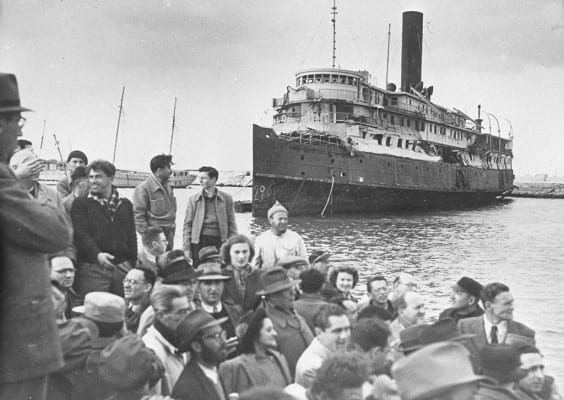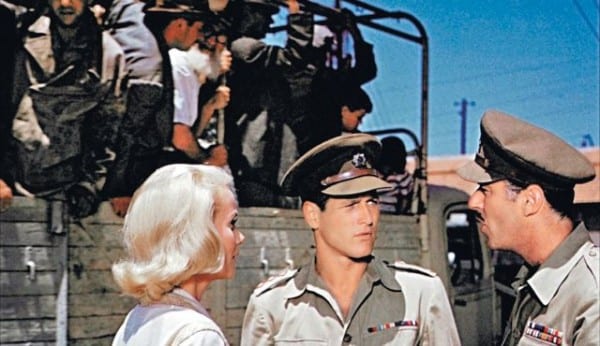[dropcap]S[/dropcap]ave for occasional verbal rebukes in egregious situations, the United States backs Israel unconditionally no matter what it does to Palestinians in the Occupied Territories. As long as this continues, Palestinians will never enjoy even a semblance of justice, and the region will never know peace.
This is as clear as can be. The relevant principals know it too – in Israel, in Palestine, and throughout the world. The only exceptions seem to be John Kerry and his advisors.
Kerry et. al. may not care much about justice for Palestinians, but they surely want peace. Peace would be a feather in their cap – and their President’s. It would also advance America’s national interests.
They also seem to think that they can encourage peace by acting as honest brokers.
It is hard to see how they can imagine themselves in that role while backing Israel to the hilt. But they do; and so, with varying degrees of cynicism and self-deception, did all their predecessors.
For the time being, Kerry and his advisors control the situation. Their stance is confused and untenable, but they remain in charge.
This is because the United States holds most of the cards and because President Obama is unwilling, in this case as in many others, to take charge. He prefers to speak from the throne and then to withdraw.
This is the Obama way: give a speech or two, and let events run their course. Because the American government cannot withdraw along with its Commander-in-Chief, underlings fill the void. Hence, the role Kerry and his advisors now play.
When it comes to starting or continuing wars, protecting banksters, snooping on everybody and everything, and trashing Constitutional protections, Obama is Johnny-on-the-spot. But when there is something constructive to do, he goes missing. This is true in foreign and domestic politics alike.
Even so, the case of Israel-Palestine is extreme. As President, Obama has the power to put his words into action. He never does. What Abba Eban said of the Palestinians more aptly applies to him: that he “never misses an opportunity to miss an opportunity.”
In fairness, though, it must be said that, in this case, Obama’s aloofness hardly sets him apart. Even activist Presidents can’t – or won’t – find ways to force Israel to make peace.
In just a few years time, the Occupation will have gone on for nearly half a century. American presidents have been culpable since Day One.
* * *
Less unconditional support for Israel on America’s part is necessary for peace and justice to prevail, but it is plainly not sufficient.
What would have to happen beyond that? This is a slightly more controversial question, but there are some general understandings.
Proposals typically fall within two broad categories.
There are, first of all, two state solutions. This is what the world community — including states adjacent to or near Israel, but excluding the United States — has tried to promote since early in the 1970s.
It has long been clear to most Palestinians that their least bad option is to get on board too; they have little choice.
Verbally, the United States joined the international consensus at the end of the 1980s, followed shortly by Israel. However, in practice, neither party has budged. They comprise a de facto rejectionist front.
The two state solution envisions the establishment of a viable Palestinian state on the roughly 22% of Mandate Palestine that is Palestinian according to international law — perhaps allowing for minor modifications to accommodate facts on the ground.
This Palestinian state would then exist alongside Israel and coexist with it in peace.
There are also calls for one-state solutions. These come in diametrically opposing versions, and are put forward for entirely different reasons.
The version most likely to be attempted, as long as American support for Israel remains undiminished, would not bring peace or justice at all. It would further entrench Israeli domination.
Thus proponents of a Greater Israel want one state, not two. They want that state to be Jewish.
The obvious problem with this is the one Zionism has had to deal with since 1897, when it was decided at the First Zionist Congress in Basel that “the Jewish state,” originally conceived by Theodor Herzl and others to save European Jews from the ravages of anti-Semitism — not to fulfill any national or religious objective — should be situated in Palestine rather than in East Africa or South America, as had also been proposed.
The problem is that other people, Palestinians, live where Zionists want Jews to be.
Despite intensive ethnic cleansing in the years immediately preceding and following Israel’s birth, roughly twenty percent of the Israeli population now living inside the so-called Green Line, Israel’s internationally recognized border, is Palestinian. Proponents of a Greater Israel consider this figure already too high.
And inasmuch as Palestinian birthrates are higher than Jewish birthrates, and because Jewish immigration is down and Jewish emigration up, the percentage is bound to rise, even if Israel’s borders remain unchanged.
Were the Occupied Territories incorporated into the Jewish state, the Jewish population would soon find itself swamped.
What, then, are the alternatives for those who want the state of Israel to remain Jewish?
Notwithstanding the moral decrepitude that has overtaken many Israeli Jews as the Occupation drags on, an Israeli version of the Final Solution is obviously out of the question.
A state that relies so heavily on Holocaust remembrance for its own legitimacy, could hardly institute a program of industrial-scale genocide of its own.
This is not to say that Israel doesn’t have its share of “willing executioners” – especially among the “national religious.” They are not beyond burning Palestinians alive, as they did to Mohammad Abu Khdair. But, this side of total war, there are limits and always will be to what the Israeli state will allow.
Rabid nationalism and Messianic religiosity can be lethal, especially when combined, but the settlers and their co-thinkers behind the Green Line and in the Jewish “diaspora” will have to be content with the usual harassments – keeping damage to property and persons within acceptable bounds.
Proponents of a Greater Israel have little reason, in any case, to take the law into their own hands, as they can always count on the Israeli state to take the lead.
There is a fine line between ethnic cleansing and genocide. In some cases – for example, in the settler states that colonized the Americas — there is no line at all. In this respect, the Zionist project has always been more humane.
But the fact remains: despite massive efforts to bring Holocaust survivors and, later, Jews living in Muslim countries into Israel, and despite the much later influx of Soviet Jews and other immigrants, it required a brutal campaign of ethnic cleansing in 1948 and 1949 to create a state in seventy-eight percent of Mandate Palestine that, sixty-five years later, has an eighty percent Jewish majority.
Though the pace is much slower (as in death by a thousand cuts), the settlements established in the territories acquired in the 1967 Six Day War continue the tradition the original ethnic cleansers began.
At first, the Israelis invoked security concerns to justify placing settlements outside the Green Line – in violation of international law. This pretense was dropped long ago. No one any longer bothers to deny that the point of the settlements is to force Arabs out so that Jews can move in.
Were proponents of a Greater Israel to establish a unitary Jewish state in all of Mandate Palestine, the pace of ethnic cleansing would likely accelerate, perhaps even to 1948-9 levels. This time, though, it would be more difficult to keep violations of international law hidden, and harder to contrive suitable pretexts.
But no matter: a state that has Uncle Sam – and, yes, God too — on its side doesn’t need pretexts.
Fortunately, at this point, the new ethnic cleansers are still in the minority, and most Israelis don’t want their country to become a pariah state. Therefore, the Netanyahu government would probably be unable to proceed with outright annexation, even if it tried, as some leading figures in it plainly think it should.
Advocates of this kind of one state solution therefore bide their time.
When it suits their purpose, they can, like Netanyahu, mouth off about how earnestly they long for a two state solution, while doing their utmost to undermine efforts to bring it about.
By expanding existing settlements and starting new ones, the colonization of Palestine proceeds.
This has been the status quo for many decades. When Palestinian resistance flares up, as it did during the first and second Intifadas, and as is bound to happen again, the Israeli Defense Force handles it.
As long as the pace remains gradual enough not to cause world opinion – American, especially – to reach a tipping point, there is no reason why the status quo cannot continue indefinitely.
Unless, of course, the Netanyahu government overreaches. This could happen; Netanyahu and his minions are inclined to push the status quo to its limits.
So far, Gaza has born the main brunt; even now, Israel is attacking it viciously. But the West Bank is not immune. At any moment, it could become an open-air prison too.
Who will stop them? Barack Obama? John Kerry? The question answers itself.
But no matter how intolerable their condition becomes, Palestinians are not going to exit their country en masse. And so, besides doing what they can to “persuade” as many Palestinians as possible to go away, the Israelis have another plan that they implement conjointly with settlement expansion.
Allowing for minor variations, they do what South Africa did or, for that matter, what the United States did in the Jim Crow South — establish an Apartheid regime. Under its strictures, Palestinians can live under Israeli jurisdiction apart from and subordinate to Israel’s JewishHerrenvolk.
This has not yet happened within Israel itself; there, Palestinians only suffer from legal and customary discrimination. But an Apartheid regime is already in place in the West Bank. By all accounts, it is worse, in some respects, than the one in South Africa. The plight of Gaza is, of course, worse still.
Were Palestinian lands currently under occupation incorporated into Israel itself, as proponents of a one (Jewish) state solution want, Israel would become a full-fledged Apartheid state.
Needless to say, most Jewish Israelis would prefer to avoid this outcome – not just because of the international disapprobation that would follow, but also because they believe, in defiance of right reason, that an ethnocracy can also be democratic.
They therefore support a two state solution – not just verbally, the way Netanyahu does, but really. They think there is no other way for Israel to remain Jewish while keeping Apartheid at bay.
Still, many of them support, or don’t oppose, Israeli efforts to make life in Palestine unbearable for Palestinians. There are exceptions of course; many of the Israeli ethnocracy’s most trenchant critics are Israeli Jews. But, in Israel like everywhere else, the majority acquiesces in the status quo.
The only way this will change is if there is a sea change in Israeli politics or if the United States, with other countries in tow, makes Israel an offer it cannot refuse. It is hard to say which is the less likely prospect.
For this reason, and because there are now so many established settlements in the twenty-two percent of Mandate Palestine that the world deems Palestinian, a two state solution no longer seems as promising a prospect as it once did. Getting from here to there would now require more than just a concerted American effort; the settlements have made the situation more complicated than that.
This is one reason why another kind of one state solution now seems increasingly appealing – one that would turn all of Mandate Palestine into a normal liberal democracy, a state of its citizens, and not of any one ethnic or religious group.
Before circumstances forced them into the two state consensus, the Palestinian resistance favored a democratic, secular state of this kind. Unlike even the most liberal Zionists, they situated their national liberation struggle firmly in the Enlightenment tradition, the tradition of the French and American Revolutions.
Of course, the religious, cultural and linguistic rights of all the state’s citizens, and of its constituent peoples, would have to be guaranteed. But this is normal in the modern era. Our Constitution’s Bill of Rights has counterparts in all modern constitutions and in the Universal Declaration of Human Rights enacted in 1948 by the General Assembly of the United Nations.
The Zionist movement never quite envisioned a democratic, secular state; its goal, from the beginning, was a Jewish state.
However, the first Zionists took it for granted that the state they would establish would be secular and procedurally democratic. It would be Jewish only in the sense that ethnic Jews would predominate, while the Hebrew language and a culture built on its foundation would prevail.
They envisioned a Jewish Denmark – a modern, secular, democratic, and ethnically homogenous state with a European culture (minus the anti-Semitism), but in Palestine, far from the European world.
Nowadays, of course, ethnic homogeneity is a thing of the past nearly everywhere — even Denmark is no longer the Denmark they envisioned. An ethnically homogenous Jewish state in Palestine was never even remotely on the horizon.
Only persons imbued with a colonial mentality, unable to take “the other” seriously, could have imagined otherwise.
To be sure, in Zionism’s early days, there were intellectuals and others – Judah Magnes, the founder of the Hebrew University was among the best known — who had a more lucid understanding of the situation into which Zionism was inserting itself. Their interests, for the most part, were cultural, not political. They saw in Palestine an ideal setting to forge that modern, Hebrew culture they were working to construct.
For this, even they thought that to achieve their ends, they needed a state: not a Jewish state necessarily, but one that is at least bi-national.
Israel is a bi-national state in the sense that two nations live there; that was inevitable. But its social and political institutions are not bi-national at all.
This idea that they should be never got far even in Zionism’s early days, and it collapsed entirely after the state of Israel was established. The spirit behind it lives on in various guises, but visions of a bi-national Israel-Palestine have been a dead letter for more than half a century.
Bi-nationalism today is therefore not on the agenda; in this sense, it is not an option. This may not be a bad thing. Nowhere in the world has it ever worked well.
* * *
Two state solutions are philosophically problematic, but at least they seem feasible – or rather they did, before the multiplication of facts on the ground got out of hand.
The one state solution – not the one advanced by proponents of a Greater Israel, but the morally acceptable one — is not philosophically problematic; indeed, it is the default position in the modern era.
But for Israel to become a state of its citizens, Israelis would have to abandon the idea of a Jewish state. The opposition to this would be implacable.
The situation therefore seems hopeless.
Nevertheless, there are signs of hope.
Radical Israeli peace groups and Palestine solidarity workers have been calling, with limited success, for boycotts of Israeli goods made in the Occupied Territories for nearly two decades. Then, in 2005, some Palestinian intellectuals called for a more concerted BDS (Boycott, Divestment, Sanctions) movement. In Europe, North America and Australasia, their call has succeeded beyond all reasonable expectations.
In just the past year, BDS has scored spectacular victories. The most notable is also the most recent: the decision reached by the Presbyterian Church (U.S.A.) to divest from three American corporations actively involved in sustaining the occupation of Palestine — Caterpillar, Motorola and Hewlett Packard.
And so, there is hopelessness and hope together. Confusion is inevitable.
This is the situation Noam Chomsky addressed in his much discussed, and much criticized, July 2 posting on The Nation website, and in the July 21/28 print edition.
As always, Chomsky’s discussion is subtle and insightful. His account of the differences between the situations in South Africa and Palestine merits serious attention. So does what he says about the role of the United States and other outside powers (including Cuba) in both cases.
Because he thinks the American stance is unlikely to change in the foreseeable future, Chomsky is skeptical about the feasibility of BDS goals. He supports boycotts and applauds divestment efforts – more as a morale booster, though, than as a way to inflict costs on influential business elites. He thinks the call for sanctions is a non-starter.
Thus Chomsky comes down hard – maybe too hard – on the hopelessness side.
His take on the BDS movement is hardly dismissive; but it is deflationary. This is why BDS proponents, along with others on the Left, have reacted negatively to it.
I am inclined to agree with them, but I won’t pursue this point here. I want instead to call attention to something Chomsky said, seemingly in passing, that bears on the question of the number of states needed in Israel-Palestine to advance towards justice and peace.
Chomsky has long favored a two state solution – presumably because he deems it the only feasible way to arrive at a satisfactory, or not too unsatisfactory, resolution of the problems brought on by the Zionist colonization of Palestine.
And he has always disparaged the rival view – on the grounds that Jewish Israelis will never give up on the idea of a Jewish state. He never quite spells out why he thinks this matters; maybe because he thinks it is too obvious to warrant more discussion.
But what he has in mind is easily enough imagined: he thinks that even if the United States insisted on the establishment of a genuinely democratic state in all of Mandate Palestine – in other words, even if it made Israel that offer it cannot refuse – the Israelis would refuse anyway; bringing the whole world down with them, if need be.
They could do it too; they have more than enough bombs.
And though many, maybe most, Israelis now are adamant about not ceding one inch of “the land of Israel” to its indigenous population, they are much more likely to give up on that, on their vision of a Greater Israel, than on the idea of a Jewish state. This, Chomsky seems to think, settles the issue. QED.
It certainly did when the only obstacle in the way of a two-state solution was the carte blanche American governments gave their Israeli counterparts. But as the settler movement has expanded, thanks largely to America’s indulgence, the feasibility case for a two state solution has diminished markedly.
By now, two states may be almost as out of reach as one. If so, why not go for an option that is less morally and philosophically problematic? It may be no more difficult to achieve.
Chomsky disagrees. Evidently, he thinks that nothing has happened in recent years that significantly alters the feasibility of one or the other option.
It is in this context that he suggests that a “no state” solution would be best of all.
Was he being facetious? It might seem so. But he is, after all, a philosophical anarchist; maybe he really meant it. A close reading of the sentence or two in The Nation article where he raises the possibility of a no state solution suggests he did.
Or both could be true: in the short run, he may think that a one state solution is so out of the question that it only merits a facetious rejoinder; while, in the long run, the entire state system is bound to be superseded, as well it should.
In any case, nothing he writes in The Nation elaborates on what a no state solution might involve. This is too bad; the option is worth pondering.
Political authority relations of one kind or another have existed in human societies for as long as there have been human beings, but the state form of political organization – in which political authority over large territories and populations is concentrated into a single institutional nexus – though anticipated in various ways in the distant past and in some non-Western societies, is a distinctively modern development.
States are indispensable for organizing societies along capitalist lines, but pre-capitalist societies have little use for them. When most people are engaged in agricultural production at a subsistence or near-subsistence level, centralized political institutions that reign over vast territories and populations serve no useful economic purpose.
However, they can and often do provide protection more effectively than would otherwise be available. However, the protection they provide is only a by-product of their main interest – which is to appropriate a portion of the society’s economic surplus to consume themselves and to pay for their militaries.
In pre-capitalist societies, ecclesiastical authorities also siphon off portions of the economic surplus. The difference is that they rely on faith, not the sword.
Therefore, in pre-capitalist times, though people are taxed, they are very little governed. So long as the tax burden is bearable, they do just fine.
On the other hand, the political and ecclesiastical authorities who stand over them often become ambitious, thirsting for ever more power and wealth. And so they do their best to expand the sphere of their authority – forging vast empires for their own aggrandizement.
From time immemorial, this was the situation in the part of the Middle East that includes the entirety of Mandate Palestine.
The Ottoman Empire was the last in a long line. Though in decline for decades, it hung on until the end of World War I, when the allied powers divided up the world.
While it existed, it provided a tolerable degree of order for its subjects and their communities – and for the nationalities and sub-national ethnic groups over which it ruled.
Not being able to foresee World War I or its aftermath, the first Zionists imagined that the Jewish colonization of Palestine would proceed under Ottoman rule.
Would that it had! The Empire provided security, even as it disintegrated. It was the state system imposed by Britain and France that made the insecurity and disorder that has become prevalent in the region possible.
The clueless meddling of the Bush and Obama administrations made an already bad situation catastrophically worse. Their attempts to impose an order upon a world they don’t begin to understand, are now causing the configuration put in place nearly a century ago by other clueless Westerners to fall apart.
It remains to be seen whether a semblance of order can be put together again. The one sure thing is that the peoples of the area have to do that on their own. Anything “the West” touches is bound to fall short.
Nowadays, of course, old-fashioned empires like the one that ruled over the Middle East a century ago are historically superseded. The forward march of global capitalism has seen to that; and there is no turning back.
But there could still be an Ottoman – or neo-Ottoman — way to keep the peoples of the region secure enough to allow them peacefully to coexist, much as they did before the West changed everything for the worse.
This may not be what Chomsky had in mind by a no state solution, but to the extent that he is right about the impossibility of turning Israel into a normal liberal democratic state, a state of its citizen, the possibility his words suggest – the possibility of a neo-Ottoman solution — becomes pertinent. To the extent that the two state solution he has favored for decades is by now impossible too, the issue becomes urgent.
It is something to think about: how a larger regional confederation might be structured and how it could be put in place. This will not be easy with the many powerful entrenched interests in the area – not just the United States, but also Saudi Arabia, the Gulf states, and, of course, Iran — pulling in a different direction. But we will never know if the prospect isn’t even broached.
A neo-Ottoman super-state or federation of states could in principle combine what is worth retaining in both of the prevailing, but otherwise problematic, views of how justice and peace can finally come, after so many decades, to all the peoples of the region.
This is a “known unknown” that merits careful and sustained attention, as we address the “known known” that is most urgent of all and that is within the power of the American public to change: weaning our government off the great historic crime to which it has been for so long addicted: aiding and abetting the trampling of Palestinians’ rights.
ANDREW LEVINE is a Senior Scholar at the Institute for Policy Studies, the author most recently of THE AMERICAN IDEOLOGY (Routledge) and POLITICAL KEY WORDS (Blackwell) as well as of many other books and articles in political philosophy. His most recent book is In Bad Faith: What’s Wrong With the Opium of the People. He was a Professor (philosophy) at the University of Wisconsin-Madison and a Research Professor (philosophy) at the University of Maryland-College Park. He is a contributor to Hopeless: Barack Obama and the Politics of Illusion (AK Press).











